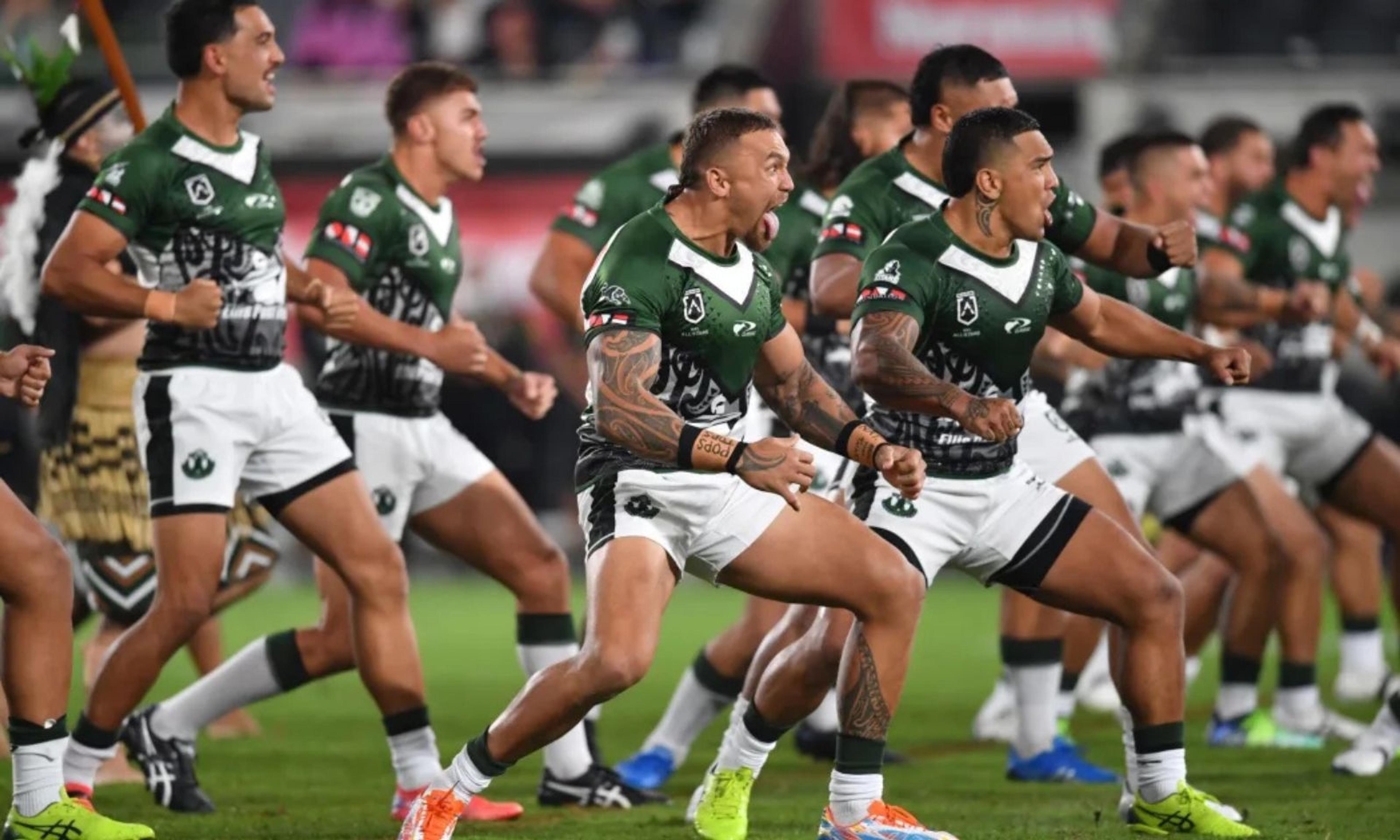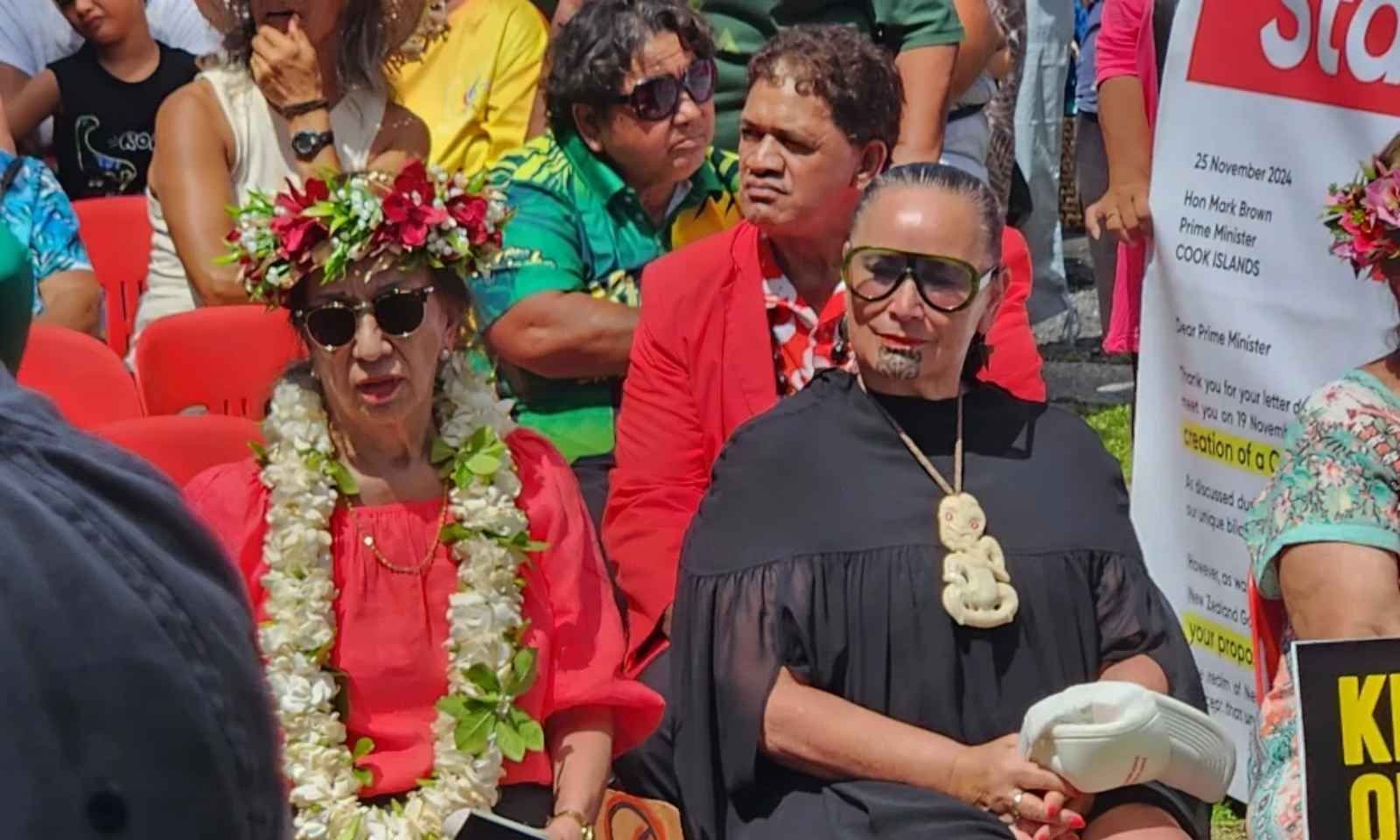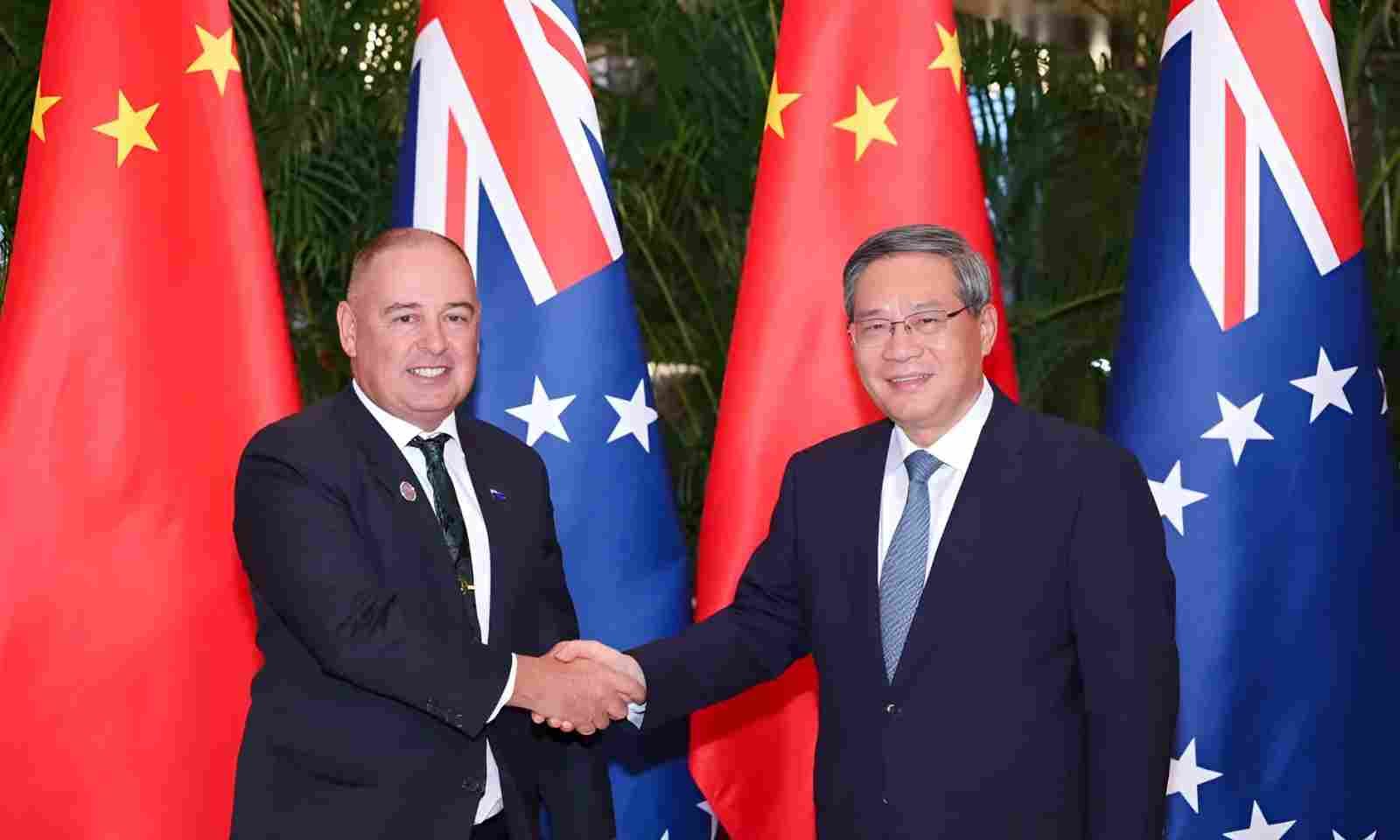

Te Pāti Māori co-leader Debbie Ngarewa-Packer.
Photo/Facebook
‘People feel blindsided’: Te Pāti Māori co-leader backs Cook Islands protest
Prime Minister Mark Brown defends a China pact, but protesters - including Te Pāti Māori co-leader Debbie Ngarewa-Packer - say it risks key interests and lacks transparency.

Time for an Indigenous State of Origin? The All Stars game shows who really powers the NRL



A Te Pāti Māori co-leader at a Rarotonga protest over the Cook Islands’ China deal urges politicians to remember who they serve.
Concerns have been raised after Cook Islands Prime Minister Mark Brown’s return from China, where a controversial partnership agreement was signed. More than 400 people gathered outside Parliament in protest on Tuesday.
The agreement with China references deeper collaboration in areas such as trade, infrastructure, and seabed minerals, causing unease among Cook Islanders concerned about the protection of local resources.
Speaking to William Terite on Pacific Mornings, Te Pāti Māori co-leader Debbie Ngarewa-Packer, who is in Rarotonga for her 30th wedding anniversary, says locals spurred her protest attendance.
She says the community is frustrated because “they don't know anything until it's coming out of the Aotearoa New Zealand media”.
“There has been real concern specifically about the separation of wakapapa as the tūakana to Aotearoa,” Ngarewa-Packer says.
“Abut what that means politically for the passports, for some of the discussions going on, and the real aroha I feel for a lot of our whānau is they're actually being blindsided.
“The frustration is about remembering who we as politicians serve.”
Watch Debbie Ngarewa-Packer’s full interview below.
Cook Islands MPs speak
RNZ reports that Prime Minister Brown has “no idea” why Ngarewa-Packer was at Tuesday’s protest. She replied that her attendance was driven by her being “a Pasifika wahine".
“I have empathy and affinity with any of our whānau who are feeling as if the Government is running off without them,” she says.
“I fundamentally am concerned for our Pacific nations and the damage seabed mining will do. None of us in these roles ever have more power than the people.”
The Cook Islands Prime Minister, who returned on Monday, has defended the deal in a parliamentary address, emphasising it forms part of a “structured approach” aimed at diversifying economic partnerships.

Te Pāti Māori co-leader Debbie Ngarewa-Packer (right) sits next to the leader of Cook Islands opposition Tina Browne at the front of Parliament during the protest. Photo /RNZ Pacific/Caleb Fotheringham
“We all want the best for our country. We must never allow division to weaken our people,” Brown says. “We must never let fear be stronger than our hope in our future.
“This government values transparency, consultation, and open dialogue.
“I welcome robust discussion, and I assure our people every agreement we sign, every partnership we enter, and every step we take is guided by one single question.”
Meanwhile, opposition Member of Parliament Teariki Heather says the Government’s actions are “very damaging” for Cook Islands-New Zealand relations, and they should be celebrating their 60th year of self-governance with Aotearoa, not against it.
NZ’s response
New Zealand officials have also voiced their concern over the accord’s limited visibility, calling for the immediate release of all documentation.
Foreign Affairs Minister Winston Peters has called for consultation and transparency, which “must lie at the heart of the New Zealand-Cook Islands relationship”.
Ngarewa-Packer says ultimately, any significant bilateral agreement should be done in conjunction with conversing with “your people sitting there beside you”.
“The opportunity before this Prime Minister and his government is to understand and listen to the concerns of his people,” she says.

Cook Islands Prime Minister Mark Brown, left, and his Chinese counterpart Li Qiang. Photo/Cook Islands government
“I get the infrastructural issues - the same in Aotearoa - there are a lot of economic woes and concerns and people are making decisions and trade-offs.
“But those have to be done with the future of the nation and your people sitting there beside you.
“What I think the Prime Minister missed out on yesterday was a beautiful collection of young pāhake (adults), kaumātua (elders), cross parties, cross nations to sit there and listen to.”